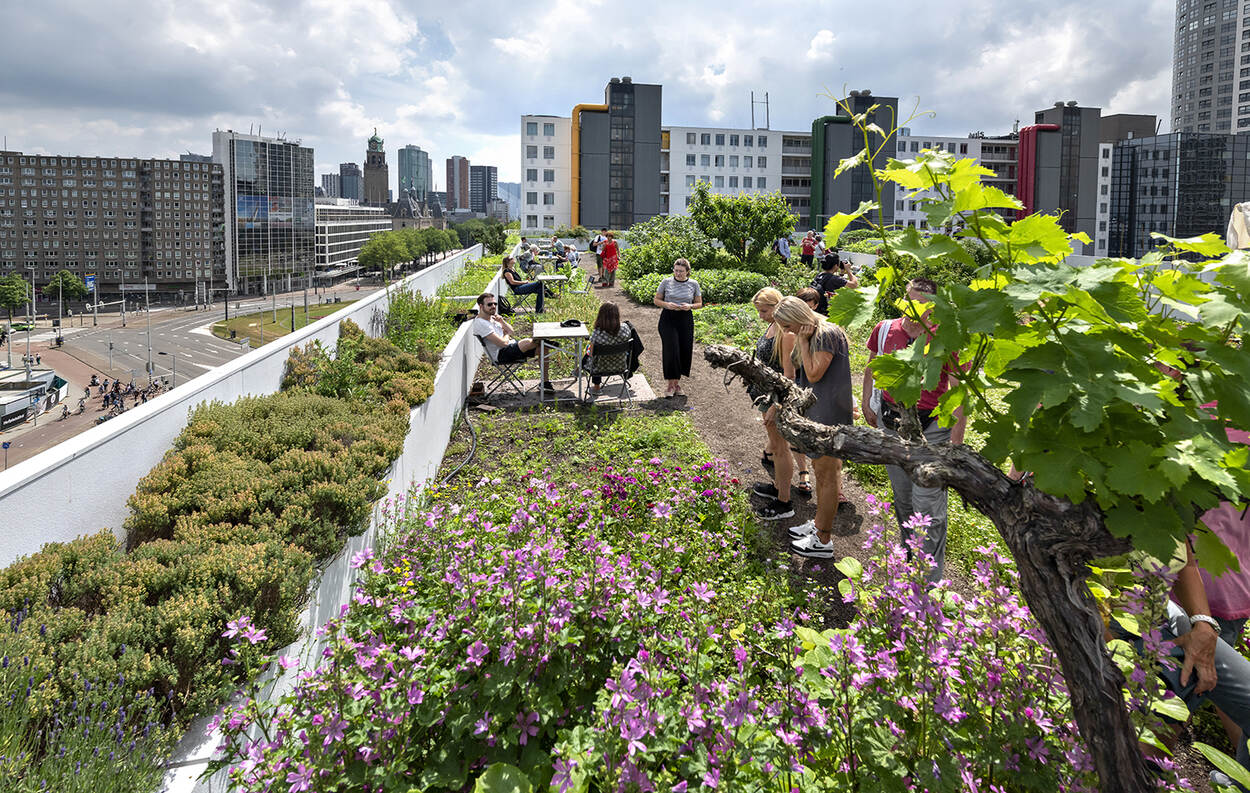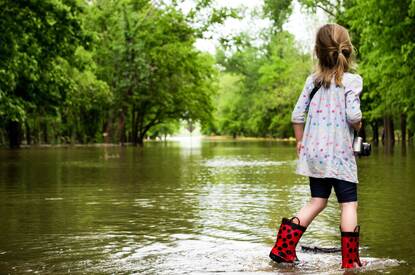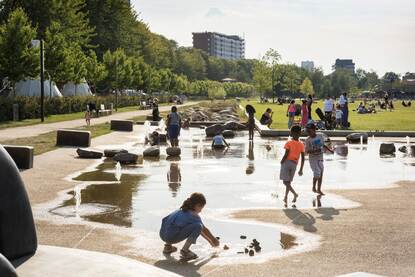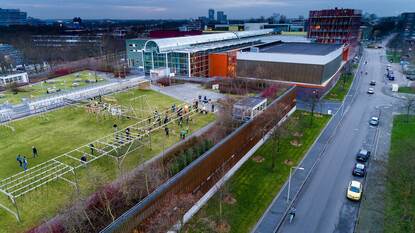Guus Velders is a Climate and Health researcher at RIVM and professor of Air Quality and Climate Interactions at Utrecht University. His contribution to stopping climate change has already been significant: his research contributed to the 2016 global climate agreement in Kigali, Rwanda. Guus Velders envisions a major role for RIVM in Climate and Health: “Climate change will continue to be a major problem for years to come, and health is core business for RIVM.”
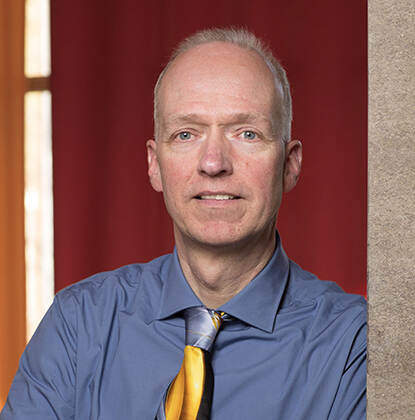
Zwolle and many other municipalities are already doing a great deal with regard to climate adaptation. How can RIVM support local governments in climate adaptation?
“The measures that are effective or could potentially be useful in climate adaptation have been compiled on the Climate change and Health website, under ‘climate adaptation’ (see link at the bottom of the article, ed.). This website is based on scientific evidence and supported by references. The measures have been categorised into green, blue, social and urban adaptation.
We wanted the information to be easy to find and use, so everyone can see for themselves what suits a particular situation. This was also one of the objectives defined in the RIVM vision document on Climate change and Health. Ideally, we want to offer operational perspectives. Although it is often difficult to give general suggestions, because a local situation almost always requires a customised response.”
What is the main focus of your work right now?
“We are currently digging deeper into the compiled knowledge, in the context of the ‘Healthier Climate’ project at RIVM. We are primarily looking for indicators that can be used to monitor health effects, such as morbidity and mortality. It is difficult to establish a clear link to climate change. Together with international partners, we are developing these health indicators (see also article on international cooperation, ed.). Many of these indicators will be similar in different countries, especially in north-western Europe."
What knowledge is urgently needed?
“All over the place, people are saying: many health effects can be expected to accompany climate change. Fine, but are we talking about major or minor effects? The link exists, but is it significant? Good quantitative information is essential. Take the tiger mosquito, for example. There are concerns, but experts say: even if the mosquito does establish a foothold here, we expect that the risk of diseases that it can transmit will be minimal. We are learning more and more all the time. One thing we do know, for example, is the number of deaths due to heat (a consequence of climate change); data on this is now available. Rather than getting bogged down in anecdotal discussions of what might happen, we need to achieve a clear understanding of what the evidence does or does not support.”
How do you envision the role for RIVM in Climate and Health?
“Climate change will continue to be a major problem for years to come, and health is core business for RIVM. I envision a major role for RIVM in this context.
I have been working on environmental topics at RIVM for a long time, but in the past three or four years, my work increasingly involves direct collaboration with colleagues focusing on health. For me personally, the most important goal is to uncover the knowledge needed to address the societal challenges regarding Climate and Health. And then to disseminate that knowledge through scientific channels. As a scientific institute, RIVM can play a major role in solutions for Climate and Health.”
